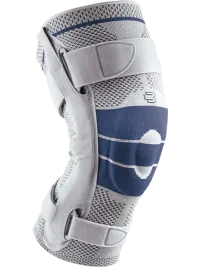
Neck Arthritis
Cervical Spondylosis
A Common Cause of Neck Pain in People over 60
Neck pain can stem from various factors, but age is often the primary culprit. Just like other parts of our body, the disks and joints in the neck, known as the cervical spine, naturally deteriorate as we grow older. The medical term for these age-related changes is cervical spondylosis, commonly referred to as arthritis of the neck.
Cervical spondylosis is most commonly associated with aging, making it particularly prevalent among middle-aged and older individuals. Several additional factors can elevate your risk of developing cervical spondylosis and experiencing neck pain, including:
- Genetics: A family history of neck pain or spondylosis can play a role.
- Smoking: This habit is strongly linked to heightened neck pain.
- Occupation: Jobs that involve repetitive neck movements or overhead tasks may contribute to the condition.
- Mental Health: Conditions such as depression or anxiety can also increase your risk.
- Previous Injuries: Any prior trauma or injury to the neck can heighten susceptibility.
Nonsurgical Treatment
In most cases, we focus on nonsurgical treatment options for cervical spondylosis. These might include, but not be limited to:
- Physical Therapy
- Non-Steroidal Anti-inflammatory Medications (NSAIDs)
- Oral Corticosteroids might also be prescribed for a short course.
- Use of a cervical soft collar to limit neck movements and provide rest
- Use of ice, heat, massage or other local therapies to alleviate symptoms
- Steroid injections are sometimes beneficial, your provider will provide you information on this therapy.
- Another treatment option is a Cervical Epidural Block, your physician will make the determination is this therapy is indicated for you.
Surgical Treatment
Surgery is rarely indicated for cervical arthritis. Your physician will make the determination of whether or not you are a candidate after careful consideration of your personal medical situation and other relevant factors.
You can read more about Cervical Arthritis on the AAOS Website.
